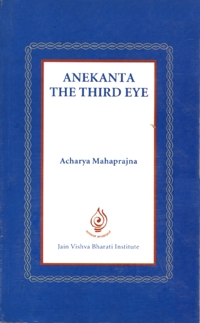
Some people get confused. They say there should be no control. Everything should be free and without controls. Some say control is very essential. Everything should be controlled. Both are one-dimensional views. With such views the balance is disturbed and where there is no balance, the results are bad.
It is not good to always accept controls nor is it always good to reject controls. It is equally not good to accept or reject no controls. It is necessary to balance the two.
In the body there are two types of nervous system. One is the voluntary nervous system and the other is the involuntary nervous system. If I wish I could move my finger and if do not wish, I could bend it. This nervous system is controlled by the mind.
The involuntary nervous system acts on its own. Mind does not have control over it. It can never happen that the mind can tell the heart whether to beat or not. Other than for those who are highly adept in meditation, the heart beat is not within the control of the mind. Under special conditions of meditations one could win control over the entire nervous system, but this is very special, not an ordinary occurrence. The ordinary occurrence is that blood flows at its own self decided pace and the heart too beats at its own will. The heart pumps out the blood. The lungs purify it. All the autonomous nerves work of their own will. The control of the mind does not operate on them either.
In our body both systems operate: one, of control and one, of no control. We exercise control over children. Every minute they have to be attended to. But when they turn 18-20 years of age, the control changes, it does not seem to be required in the same manner as before.
Control and the lack of it are both relative. Evenon growing up if the intellect and wisdom have not been awakened, then control is necessary. Once the intellect and wisdom have been awakened, controls diminish and even become non-existent. The same logic of relativity applies to the senses. It is necessary to control the senses. As long as desires are not pacified, it is necessary to control the senses. But once desires have been pacified, it is no longer necessary to exercise any control over the senses. It is not necessary to close the eyes. But when the sight is very painful then it becomes necessary to close the eyes. The tradition of purdah or veiling the face found its origin in the need to restrain the eyes. Today women observe purdah but in the time of the Ramayana, demonic men used to observe purdah. What is the need for a woman to observe purdah? The men lack control and the women have to observe purdah? What a strange situation! One man is ill and another takes the medicine? That person should observe purdah who is not able to exercise control over himself. If there is distortion in the eye then purdah is essential. It is possible that with respect to today's men, the demons of those days had more sense. They observed purdah for men not women.
Control is necessary when passions are not appeased. When passions have been appeased then there is no danger even if the eyes are open, the ears are open, anything and everything is open. No control or rule is necessary then.
In Agamic literature there is a system of the jinkalpa and the sthavirkalpa, which are some rules facing the man who begins meditational practice. The rules are many more in the beginning and fewer at the core. As the practice develops, method becomes less important and the inner being develops. The one who is in his first year of practice has many more rules to follow than the one who has been practicing for fifty years. With continuous practice, the person transcends sacred rituals. He goes beyond sacred rituals, beyond systems and rules. For him there are no rules of conduct. For him there is no outer control or rule. He is forever liberated, uncontrolled and free.
Bhagvan Mahavira said, « Kusale pun nnao baddhe mukke" The one who is free from all attachment is not bound by any rules nor is he free of them. There is no control over him but he is not free from discipline. He is neither bound nor free. He is not bound by outer rules but neither is he free frorn self-discipline. All the seeds that cause bondage have died. All activities that caused attachment have come to an end.
 Acharya Mahaprajna
Acharya Mahaprajna
